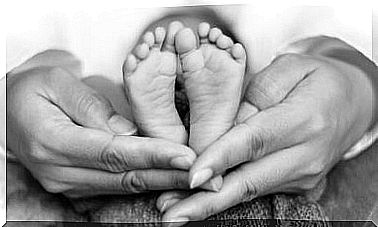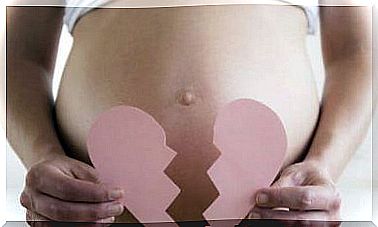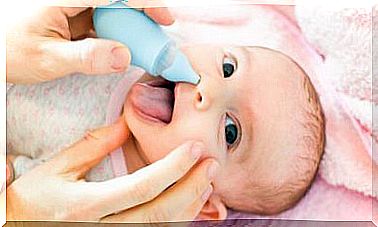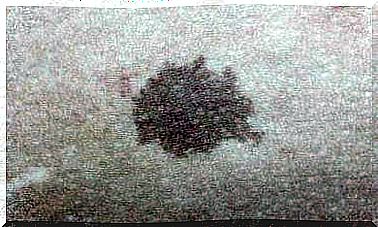Avoiding Baby Regurgitation: Here’s How

Baby regurgitation is quite common during the first months of life. They appear after meals mostly in 40% of healthy newborns. The fluid expelled during regurgitation is made up of a small amount of milk, saliva and gastric juices.
Most babies will have this type of problem very early, around the first 12 months of age. Regurgitation affects neither the health nor the development of the baby.
However, a small number of children regurgitate to such an extent that this can affect development. For this reason, infants who regurgitate often need to be weighed frequently.
Regurgitation is not caused by allergy or intolerance to a food. They are generally common and do not require additional treatment although abundant.
However, there are some methods you can use to avoid baby regurgitation. Discover them all below.
Avoiding regurgitation: the causes
In babies, regurgitation is mainly caused by two factors: immaturity of the digestive system and a predominantly liquid diet. However, it may also be due to other reasons. In fact it is a practically inevitable phenomenon in all young children.
The main cause of regurgitation is the wrong position of the esophagus; the organ that allows the passage of food to the stomach. This has the task of shredding and making the food ready for digestion and then pass into the intestine.
Normally this activity is regulated by the cardia, a circular muscle that allows communication between the esophagus and stomach. By contracting, it prevents food from going back into the mouth.
In the baby this muscle still doesn’t work properly. As a result, the esophagus remains partially open and allows the swallowed milk to rise back into the mouth.
The regurgitation problem resolves itself spontaneously when the cardia contracts without problems in order to close the passage to food, once swallowed.
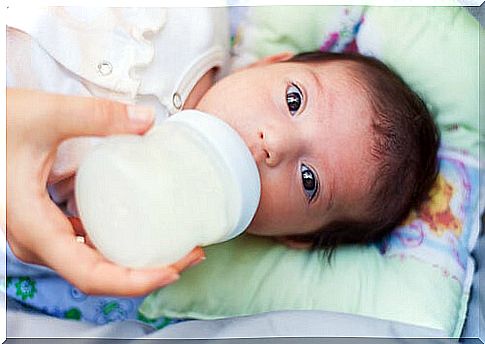
What to do to avoid baby regurgitation?
Sometimes, the baby may regurgitate more than usual, especially if bottle-fed. To avoid regurgitation you can apply these tips.
- After eating, the baby must burp to expel the air swallowed during the meal.
- Avoid giving him large amounts of milk and overfilling his stomach.
- Interval meals with breaks to encourage burping.
- Make sure you give him the correct nipple, and that the milk flow is adequate.
- Give him your breasts before he is too hungry, you will prevent him from ingesting large amounts of air.
- If the baby feeds through a bottle, you can add aggregating substances to make the milk less liquid, all this will limit the appearance of regurgitation.
- The introduction of solid foods during weaning reduces regurgitation.
- You can try anti-reflux milk or dilute a binder in your usual milk.
- When digesting, avoid moving the baby too much and letting him play.
- Do not offer fruit juice to the baby, it could cause gastric reflux due to its acidity.
Avoiding regurgitation: when to worry?
In most cases, you shouldn’t be too alarmed. However, there are some symptoms that you should pay attention to.
- The child has growth problems.
- She cries a lot between meals.
- He does not rest well.
- Suffering from infections.
- Regurgitation is frequent and accompanied by diarrhea.
- The baby has a fever.
- Traces of blood in the regurgitation.

How to distinguish regurgitation from vomiting?
Unlike regurgitation, vomiting is a violent expulsion of stomach contents. It is very important to be able to distinguish a regurgitation from vomiting, since the latter could be a symptom of something more serious and cause dehydration.
In general, occasional vomiting is not accompanied by other symptoms and therefore should not cause concern and disquiet.
In conclusion, this list to avoid the frequent regurgitation of the baby can be of great help if necessary. As a mother, you must keep in mind that if the baby regurgitates large quantities of milk, or if the expulsion is more violent than necessary, it is necessary to consult a pediatrician.
